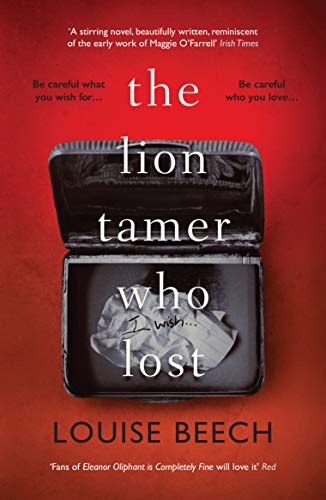
Little by Edward Carey Gallic Books October 4th 2018
There is a space between life and death: it’s called waxworks”
The wry, macabre, unforgettable tale of an ambitious orphan in Revolutionary Paris, befriended by royalty and radicals alike, who transforms herself into the legendary Madame Tussaud.
In 1761, a tiny, odd-looking girl named Marie is born in a village in Alsace. After the death of her parents, she is apprenticed to an eccentric wax sculptor and whisked off to the seamy streets of Paris, where they meet a domineering widow and her quiet, pale son. Together, they convert an abandoned monkey house into an exhibition hall for wax heads, and the spectacle becomes a sensation. As word of her artistic talent spreads, Marie is called to Versailles, where she tutors a princess and saves Marie Antoinette in childbirth. But outside the palace walls, Paris is roiling: The revolutionary mob is demanding heads, and . . . at the wax museum, heads are what they do.
My review
Have you ever wondered just who Madam Tussaud was? Many of us will have visited Madame Tussaud’s in London and wondered how it came into being, and like me be ignorant of its very full and colourful history. I was therefore very excited to receive and read a proof copy of Little, and even more excited by the illustrations that adorned the front cover and littered the narrative.
Straight away Carey plunged me into the life of Anne Marie Grosholtz, a young girl orphaned and taken in by the rather eccentric Dr Curtius and renamed Little. It is their departure for Paris and their subsequent life in the city where the novel excels, Carey, skilfully using Little as a conduit of history.
The historical detail was impressive, well researched, and brilliantly intertwined with the story of Little’s life. It was easy and her treatment by the widow, who Curtuis adored, was abysmal yet Little was strong, determined, resourceful and a survivor. I loved the images Carey drew of her life in Versailles, of her devotion to the Princess Elizabeth, of the grandeur and opulence, sharply contrasting the near slave like existence she experienced with Curtuis and the widow in the Monkey House.
If I thought her life in Versaille was interesting, it was the onset of the French Revolution where the novel and Carey’s storytelling had me enthralled.
The novel turned truly macabre, the detail, and the imagery were almost cinematic, the tension palpable and the pace fast. Famous names such as Voltaire, Robespierre and Dr Jean-Paul Marat littered the pages as Carey brilliantly brought the revolution to life. How Little survived was truly remarkable, in fact her whole story was remarkable.
If the narrative was impressive, then the illustrations were equally impressive. Carey scattered them throughout, breaking up the text, inserting small drawings and at times full page drawings depicting characters, body parts and tools. I loved how the text and illustrations complemented each other, one never drowning out the other, but enhancing and lifting the whole novel into something that was utterly mesmerising and unique.
I was sad when the novel came to an end, but am no longer ignorant of the true story of Madame Tussaud and the colour and imagery will stay with me for a long time.
What struck me whilst reading, is that Little would make a fantastic drama series, and would perfectly fit the brief for the infamous 9pm Sunday evening slot on the BBC, the only dilemma being, just who would play Little!!
I would like to thank Gallic Books for a copy of Little to read review.
About the author

Novelist, visual artist and playwright. He has written and produced several plays. His debut novel ‘Obersvatory Mansions’ (with author’s illustrations) is sold in 14 countries and was described by John Fowles as ‘proving the potential brilliance of the novel form’.
Born in England, he teaches at the University of Austin, Texas.



















